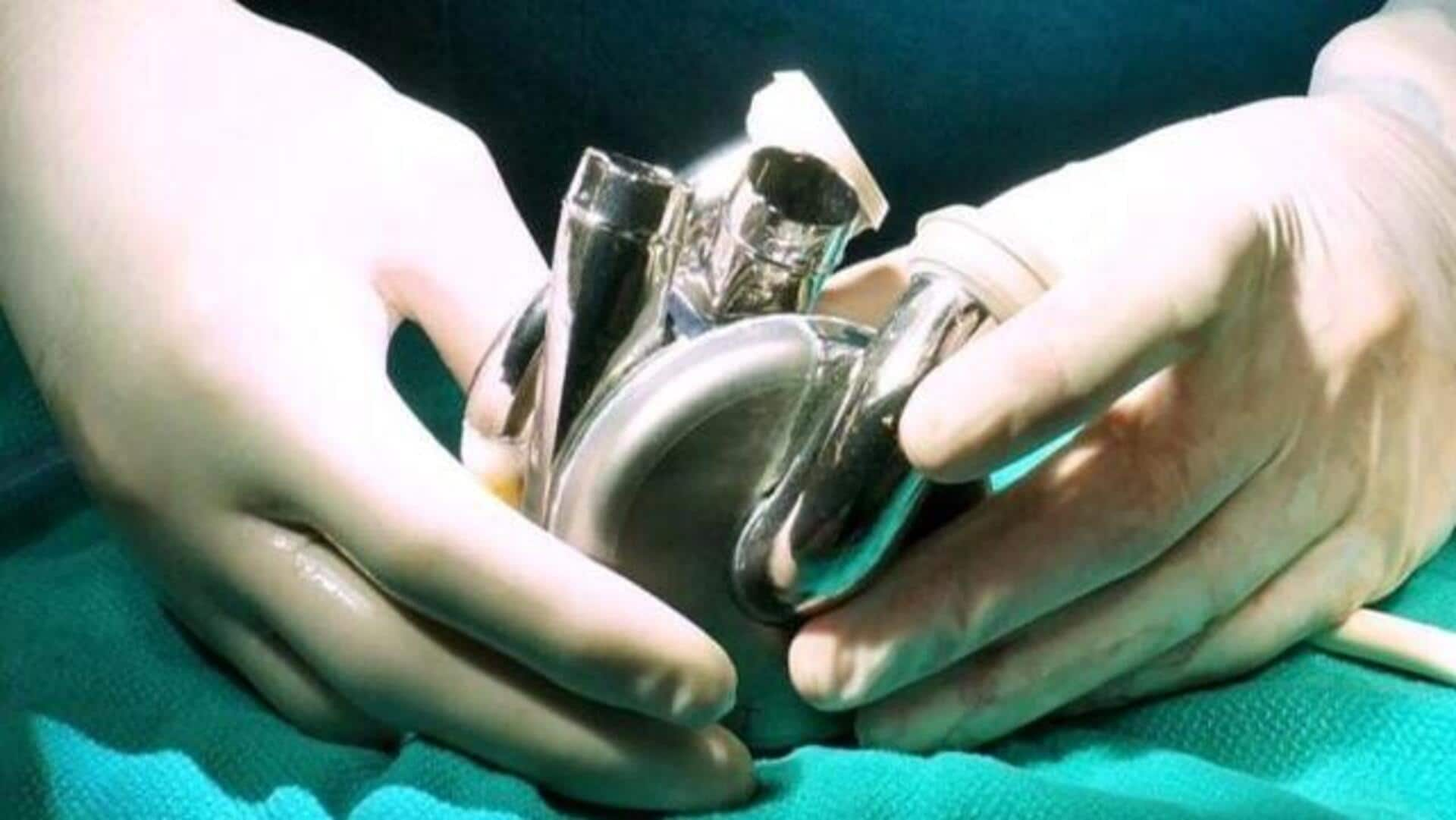
Man survives for 8 days with a titanium heart implant
What's the story
In a landmark medical achievement, a 58-year-old US man has become the first person globally to receive a temporary, titanium heart. The device, called Total Artificial Heart (TAH), was developed by BiVACOR. Unlike conventional artificial hearts that imitate human heartbeat, this innovative device uses a single magnetically levitating rotor to pump blood throughout the body. BiVACOR's artificial heart was successfully implanted in a patient with end-stage heart failure after years of research and testing. It functioned effectively for eight days.
Design innovation
A compact and durable solution
The TAH is a compact device, roughly the size of a human fist. Its design eliminates the need for flexible chambers or pumping diaphragms, making it more durable than traditional artificial hearts. The only moving part inside this double-chambered device is a magnetically levitating rotor that pumps blood to both the lungs and the rest of the body, without causing any friction-related damage over time.
Medical milestone
TAH's successful implantation and operation
The TAH is powered by a mini, portable controller that exits through the patient's stomach. After a decade of development involving multiple designs and numerous animal studies, BiVACOR's artificial heart was successfully implanted into a living patient at Baylor St. Luke's Medical Center at the Texas Heart Institute without complications. The titanium heart functioned effectively for eight days before a real donor heart became available.
Future prospects
TAH: A potential game-changer in heart transplants
Currently, real donor hearts are considered the best treatment option for people with severe heart failure. However, less than 6,000 heart transplants occur worldwide each year. This makes artificial hearts like TAH crucial for extending and improving the quality of life for transplant-eligible patients at risk of imminent death. BiVACOR's TAH is hailed as a "paradigm shift" in artificial heart design that is built to last.